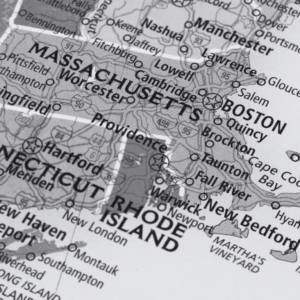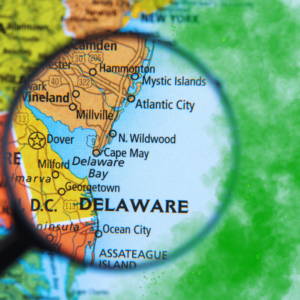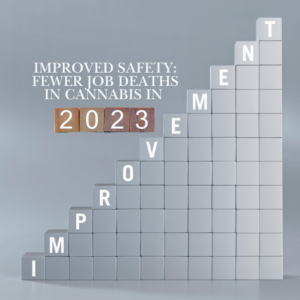Chris Christie: Trump Will Ease Federal Cannabis Restrictions

Chris Christie Calls for Clear Stance on Cannabis and Crypto: Anticipates Trump’s Push for Deregulation
In a recent exclusive conversation with Benzinga Cannabis facilitated by Covers.com, former New Jersey Governor Chris Christie expressed his perspective on the future of cannabis regulation and cryptocurrency adoption in the United States. Framing both within a trend of deregulation, Christie anticipates that President-elect Donald Trump’s administration may take steps to loosen restrictions in these industries, though he acknowledges that each sector faces unique challenges. Christie’s stance suggests a potential shift in federal cannabis policy that would address current regulatory barriers while also setting the stage for greater acceptance of cryptocurrencies.
Christie on Cannabis: Descheduling a Possible Next Step
Christie, known for his traditionally conservative stance on cannabis, opened up about the possibility of federal descheduling under Trump’s leadership. Although he has consistently opposed full federal legalization, Christie acknowledges that Trump may attempt to remove cannabis from its Schedule I status with the Drug Enforcement Administration (DEA), a classification that currently marks it as a substance with no accepted medical use and a high potential for abuse. This designation has been a major roadblock for cannabis companies seeking access to banking and financial services, as federally regulated institutions are wary of doing business with an industry tied to a Schedule I drug.
Christie sees descheduling as a “middle ground” that could address some of the cannabis industry’s largest hurdles without explicitly endorsing nationwide legalization. By downgrading cannabis, he believes the federal government could provide a pathway for legitimate business operations to flourish, enabling cannabis businesses to secure traditional banking services and establish financial stability. This shift would potentially transform the landscape of the U.S. cannabis market, which has faced financial constraints due to the lack of federal banking support.
Banking Barriers and Cannabis: A Potential Regulatory Shift
The financial challenges currently faced by the cannabis industry are largely due to its Schedule I status, which places cannabis alongside heroin and other drugs deemed highly dangerous and illegal under federal law. This classification discourages banks and financial institutions from working with cannabis businesses, leaving dispensaries and related businesses to operate primarily in cash, a practice that presents security risks and operational difficulties.
Christie highlights these obstacles, noting that the stigma associated with cannabis-derived proceeds dissuades many businesses from engaging with the industry. By removing cannabis from the controlled substances list, Christie suggests that banks and financial institutions would be more comfortable establishing partnerships with cannabis companies, thereby increasing access to essential financial services. This could potentially allow the industry to move away from cash-based operations, enhancing security and operational efficiency while making cannabis companies more financially viable.
Balancing Conservative Values with Industry Realities
Christie’s commentary represents a nuanced approach to cannabis regulation, as he balances his conservative principles with a pragmatic view of the industry’s current challenges. While he remains personally opposed to cannabis legalization, Christie acknowledges the economic and practical benefits of enabling cannabis businesses to operate within a legitimate regulatory framework. By descheduling cannabis, Christie believes the government could open the door to financial growth within the industry without fully legalizing it, thereby aligning with a pro-business agenda.
This stance indicates a potential shift in Christie’s approach to cannabis, one that reconciles his traditional opposition with an understanding of the regulatory changes needed to support industry growth. In his view, descheduling cannabis may satisfy both sides: it allows cannabis businesses to operate more freely while stopping short of an outright federal endorsement of cannabis use.
The Future of Cannabis and Cryptocurrency under Trump’s Leadership
Christie’s comments also extend to cryptocurrency, another industry he sees as ripe for deregulation under Trump’s administration. Christie believes that both cannabis and cryptocurrency could benefit from a federal policy shift that favors deregulation, enabling these industries to grow within a more supportive legal framework. However, he acknowledges that each sector will need to navigate its own regulatory challenges as they seek legitimacy.
For cannabis, the priority is achieving a classification that allows for banking and financial transactions, while the cryptocurrency sector may benefit from regulatory clarity around digital assets. Christie’s outlook reflects a broader belief that Trump’s administration could create conditions conducive to business growth by reducing regulatory barriers in emerging industries.
Implications for the Cannabis Industry
If Trump’s administration pursues descheduling, it could signal a transformative period for the cannabis industry. Removing cannabis from the controlled substances list would allow cannabis businesses greater access to financing, banking, and investment opportunities. This change could encourage more entrepreneurs to enter the market, expand existing businesses, and lead to broader public acceptance of cannabis as a mainstream industry. In turn, states that have already legalized cannabis at the local level would likely see an influx of tax revenue and job creation, bolstering their economies.
For banks and financial institutions, federal descheduling could alleviate concerns about legal repercussions and compliance risks. This would pave the way for cannabis companies to utilize traditional banking services, including loans, payment processing, and investment options, creating a safer and more stable financial environment for the industry. Ultimately, federal descheduling would likely lead to a more integrated cannabis industry that can operate with the same financial privileges as other legitimate businesses.
A Turning Point for Cannabis and Crypto?
Christie’s insights suggest a potential shift in cannabis and cryptocurrency policy that aligns with Trump’s anticipated deregulation agenda. By focusing on descheduling rather than outright legalization, Christie believes that Trump may take steps to alleviate the financial and operational burdens faced by the cannabis industry. This middle-ground approach could open doors for new financial partnerships and encourage growth across the sector without compromising conservative values.
As the country moves into a new administration, the cannabis and cryptocurrency industries may be poised for regulatory reforms that could reshape their futures. Whether these changes will materialize remains to be seen, but Christie’s comments offer a glimpse into a potential pathway forward for two industries at the forefront of modern deregulation.











